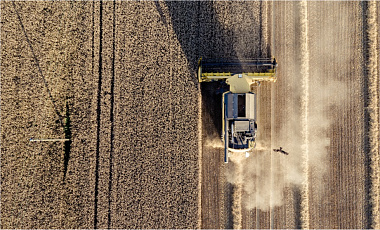Criminal offences under the Directive
Article 3 of the Directive requires that EU Member States criminalise the following offences if they are committed intentionally:- making funds or economic resources available to, or for the benefit of, a designated person, entity or body (“Designated Person”) in violation of prohibitions imposed by EU sanctions;
- failing to freeze funds or economic resources belonging to or owned, held or controlled by a Designated Person in violation of an obligation set out in EU sanctions;
- enabling the entry of Designated Persons (natural persons) into, or their transit through, the territory of a Member State;
- entering into or continuing transactions with third states, bodies of third states, entities or bodies owned or controlled by third states or bodies of third states, which are prohibited or restricted by EU sanctions, including the award or continued execution of public or concession contracts;
- trading, importing, exporting, selling, purchasing, transferring, transiting or transporting goods as well as providing brokering services, technical assistance or other services relating to those goods, in violation of the prohibitions imposed by EU sanctions;
- providing financial services or performing financial activities which are prohibited or restricted by EU sanctions,
- providing other services which are prohibited or restricted by EU sanctions;
- circumventing EU sanctions by:
- transferring funds or economic resources owned, held, or controlled by a Designated Person, which are to be frozen in accordance with EU sanctions, to a third party to conceal those funds or economic resources;
- providing false or misleading information to conceal the fact that a Designated Person is the ultimate owner or beneficiary of funds or economic resources which are to be frozen in accordance with EU sanctions;
- a Designated Person (natural person), or by a representative of a Designated Person, failing to comply with an obligation imposed by EU sanctions to report funds or economic resources within the jurisdiction of a Member State, belonging to, owned, held, or controlled by them;
- failing to comply with an obligation imposed by EU sanctions to provide information obtained in the performance of professional duty on frozen funds or economic resources or information held about funds or economic resources within the territory of EU Member States, belonging to, owned, held or controlled by Designated Persons and which have not been frozen, to the competent administrative authorities;
- breaching or failing to fulfil conditions under authorisations granted by competent authorities to conduct activities, which in the absence of such an authorisation are prohibited or restricted under EU sanctions.
However, the Preamble states that the Directive should cover only serious violations of sanctions. Therefore, it should not apply to violations involving funds, economic resources, goods, services, transactions or activities of a value of less than EUR 10,000.
Criminal liability for the violation of sanctions under the Directive
Article 5 of the Directive provides that EU Member States must ensure that criminal offences are punishable by effective, proportionate and dissuasive criminal penalties.Furthermore, Article 5 prescribes specific penalties for certain criminal offences (in particular, more strict punishment for offences involving a value of at least EUR 100,000). Other types of criminal liability include imprisonment, fines, etc.
Other provisions of the Directive
The Directive also contemplates:- aggravating circumstances, e.g., where the offence was committed by a person performing a public function or as a part of a criminal organisation (Article 8);
- mitigating circumstances, in particular, where assistance is provided to identify an offence by providing information (Article 9);
- the freezing and confiscation of instrumentalities and proceeds from criminal offences (Article 10);
- the limitation period for liability (Article 12);
- cooperation between EU Member States, the European Commission, Europol, Eurojust and the European Public Prosecutor’s Office (Article 16), etc.
Further steps and significance of the Directive
The Directive is yet to be adopted by the European Parliament.Once adopted, it will substantially amend the EU laws approach to liability for violations and circumvention of sanctions.
Liability for violating or circumventing EU sanctions is currently provided under the national laws of EU Member States. This has led to significant differences in penalties imposed by different states. For instance, in Cyprus and Austria, the maximum prison sentence is two years, whereas in France and Estonia it is five years and in Germany 10 years.
When the Directive is adopted, EU Member States will be obliged to observe all requirements of the Directive by amending their national laws.
The Directive is quite broad and imposes significant requirements on EU Member States to criminalise violations of sanctions while leaving room for national legislators. It is worth noting that the Directive contains not only criminal law rules but also rules of criminal procedure.
The adoption of the Directive and its implementation by EU Member States will, in our view, result in additional over-compliance. Given the risks, and mitigating and aggravating circumstances, it will be easier for EU persons to simply refuse to enter into, or to freeze, a deal/transaction and immediately notify the competent authorities of EU Member States.
Furthermore, it is most likely that the EU could follow the approach taken by the US which extensively uses criminal proceedings to confiscate assets (see, for example, the USD 5.4 million decision regarding Konstantin Malofeev’s assets).





